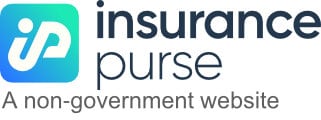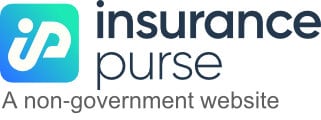Medicare
Is Medicare Enough? How to Supplement Your Coverage
When it comes to healthcare, one of the biggest questions on people’s minds is, Is Medicare enough to cover all of their medical expenses? Medicare is a comprehensive health insurance program for individuals 65 and older, as well as younger people with certain disabilities. While it covers a wide range of services, it doesn’t cover everything. This leaves many wondering if they need additional insurance to fill in the gaps.
So, how do you ensure that you’re not left with huge out-of-pocket expenses? In this article, we’ll explore the limitations of Medicare and how to supplement your coverage to make sure you’re fully protected. If you’ve ever wondered whether Medicare alone will give you the peace of mind you need, keep reading.
Understanding the Limitations of Medicare
Before diving into how to supplement your coverage, it’s important to understand the specific services Medicare doesn’t cover. Medicare is divided into different parts:
- Part A (Hospital Insurance): Covers inpatient care, skilled nursing facility care, hospice care, and some home health services.
- Part B (Medical Insurance): Covers outpatient care, doctor visits, preventive services, and some home health services.
- Part D (Prescription Drug Coverage): Helps pay for prescription medications.
While these parts cover a significant portion of healthcare costs, they don’t cover everything. For example, Medicare doesn’t pay for most dental care, vision services, hearing aids, or long-term care. Additionally, there are out-of-pocket costs like deductibles, copayments, and coinsurance. This is where Medicare supplement plans can make a huge difference.
The Financial Gap
One of the most common concerns people have about Medicare is whether it covers enough of their healthcare expenses. In many cases, the answer is no. While Medicare helps with many medical costs, it doesn’t cover everything. As a result, beneficiaries often find themselves facing unexpected out-of-pocket expenses.
In fact, Medicare only covers about 80% of healthcare costs, leaving you with the remaining 20%. This can add up quickly, especially if you have chronic conditions, need regular doctor visits, or face unexpected medical issues. For those on a fixed income, the financial burden can be overwhelming.
But don’t worry! There are several options for supplementing your Medicare coverage, helping to cover that gap and provide extra peace of mind.
Options for Supplementing Your Coverage
If you’re concerned about the costs Medicare doesn’t cover, there are several ways to supplement your coverage. Let’s break down the most popular options:
1. Medicare Supplement Plans (Medigap)
Medicare Supplement plans, also known as Medigap, are private insurance policies designed to work alongside Original Medicare (Parts A and B). These plans help cover the out-of-pocket costs that Medicare doesn’t, such as copayments, coinsurance, and deductibles.
There are 10 standardized Medigap plans, each offering a different level of coverage. Some plans cover more expenses than others, so you can choose one based on your healthcare needs and budget. Medigap plans are available through private insurance companies, and premiums vary depending on your location and the plan you choose.
2. Medicare Advantage Plans (Part C)
Medicare Advantage, or Part C, is another option for supplementing your Medicare coverage. Unlike Medigap, Medicare Advantage plans combine all of your Medicare benefits (Parts A and B) into one plan. Many Medicare Advantage plans also include prescription drug coverage (Part D), as well as extra benefits like dental, vision, and hearing services, which Original Medicare doesn’t cover.
One of the main advantages of Medicare Advantage is the added benefits and the potential for lower out-of-pocket costs. However, these plans often have provider networks, so you’ll need to see doctors within the network to get the most affordable care.
3. Prescription Drug Plans (Part D)
If you need prescription drug coverage, Medicare Part D plans are an essential way to supplement your Medicare benefits. Part D helps cover the cost of prescription medications, which can be a major expense without insurance. These plans are offered by private insurers and can be added to either Original Medicare or some Medicare Advantage plans.
It’s important to note that not all Medicare Advantage plans include Part D coverage. If you don’t have a plan that offers drug coverage, you’ll need to enroll in a standalone Part D plan.
4. Dental, Vision, and Hearing Coverage
Original Medicare doesn’t cover dental, vision, or hearing services, but you can find supplemental insurance plans that cover these needs. Many private insurers offer standalone dental and vision plans, or they may be included as additional benefits in some Medicare Advantage plans.
If you need hearing aids or regular eye exams, this extra coverage can be invaluable, as these services can add up quickly without insurance.
5. Long-Term Care Insurance
Medicare also doesn’t cover long-term care, which includes services like nursing home care or help with daily activities like bathing and dressing. While Medicare covers short-term stays in skilled nursing facilities (if you meet certain conditions), it doesn’t cover the ongoing costs of long-term care.
If you want to protect yourself from the high costs of long-term care, you may want to consider long-term care insurance. It’s a specialized type of insurance that helps pay for services when you need extended care.
The Verdict
Ultimately, whether Medicare is enough for you depends on your individual healthcare needs and financial situation. While Medicare covers a lot of expenses, it doesn’t cover everything, and the out-of-pocket costs can add up quickly. To fill in the gaps and get additional coverage for things like prescription drugs, dental care, or long-term care, you’ll likely need to consider supplemental insurance options.
If you’re still asking yourself, the answer is likely no—at least not by itself. But don’t worry. There are plenty of ways to supplement your coverage and make sure you have the protection you need. Whether it’s through Medigap, Medicare Advantage, or standalone plans for things like vision and dental care, you can create a plan that works for your health and budget.
Is Medicare Enough?
Medicare provides vital health coverage for millions of Americans, but it’s not a one-size-fits-all solution. By exploring options to supplement your coverage, you can ensure that you’re protected against the high costs of healthcare. Consider speaking with a Medicare expert or insurance broker to find the best plan for your needs, and make sure you’re not left wondering, is it enough?









